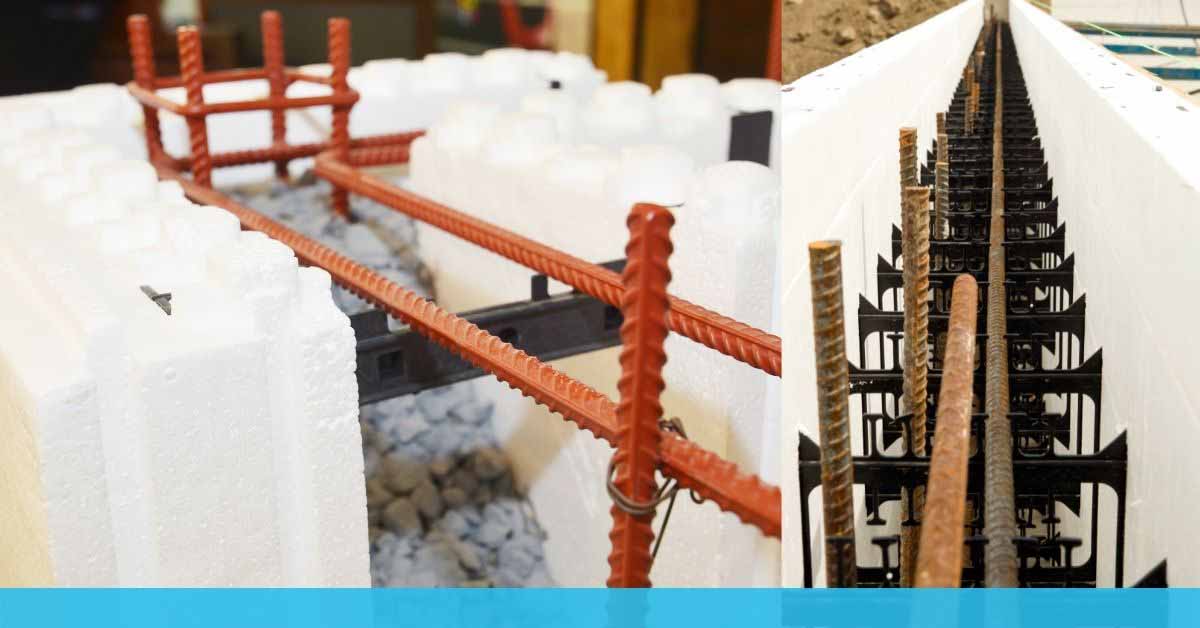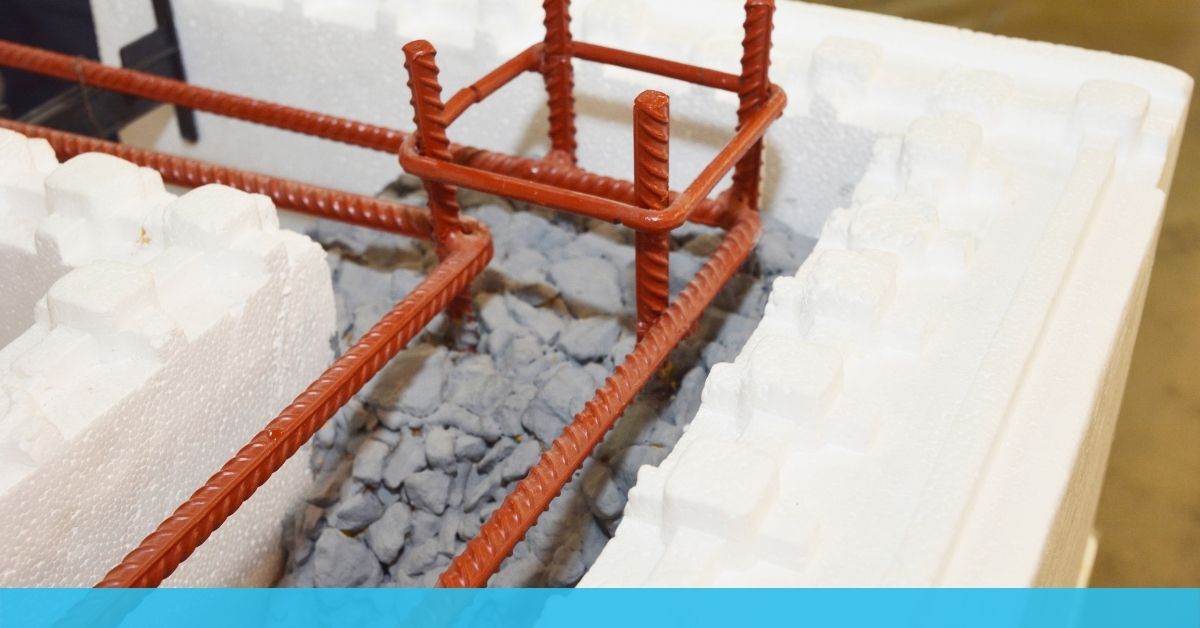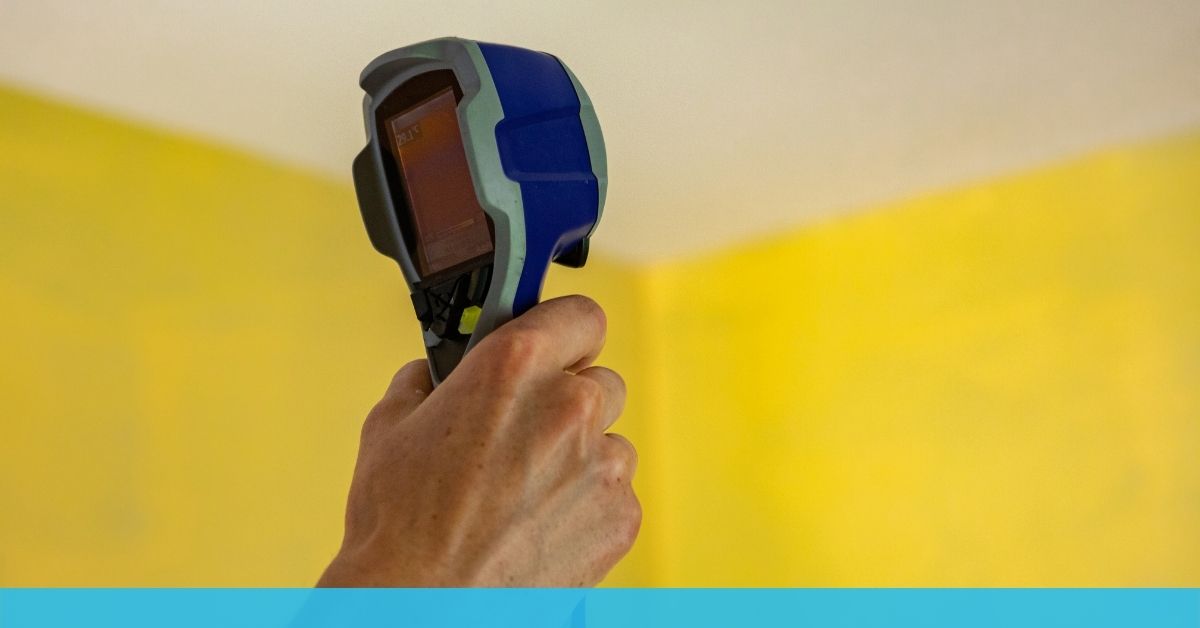
While masonry foundations are suitable for supporting a structure, they have their drawbacks. For starters, they tend to absorb energy more quickly, not to mention how they’re not an ideal option for transitioning to eco-friendly solutions. Homeowners in Connecticut are starting to look for better choices for building sturdier foundations that offer even more benefits.
In recent years, insulated concrete forms are becoming an ideal alternative to traditional masonry foundations. Read on to see why many homeowners and contractors prefer ICFs over other options.

Insulated concrete forms (ICF) is a technology that dates back to the 1940s. It is made of molded expanded polystyrene shells bundled together to form foundational forms. Once filled with concrete, it results in a strong, moisture-repellent, and energy-efficient poured masonry wall. ICFs typically stay in place even after a home or a building is complete, and it’s applicable for both interior and exterior installations.
ICFs are useful for constructing a structure’s foundation for several reasons. What benefits can you reap from choosing ICFs for your home’s foundation?
Amongst the most significant advantages of ICFs is their energy efficiency. Due to the ICF effect, the construction of the forms provided an R-value of 25, compared to typical uninsulated masonry walls whose insulation values are only R-1, equivalent to a single glass pane. In addition, because of the ICF effect, these concrete forms can offer 60% less energy loss, resulting in a comfortable home.
They Work Well for Exterior Walls
ICFs offer different applications regarding exterior finishes, such as stucco, panel sidings, and fiber cement boards. For instance, if you can install an exterior finish on a typical wood-frame structure, you can use it on a wall made with ICFs.

They Can Improve Indoor Air Quality
The benefits of these concrete forms don’t stop with being energy efficient. Since ICF exterior walls are much denser and more compact than traditional stick-framed walls, they can prevent air from enveloping your home’s exterior. This phenomenon results in energy savings and reduces pollution from outside elements like dust and allergens.
ICFs have excellent noise-reducing properties, making them ideal for homeowners who want to make their homes more soundproof. In fact, a study released by ICF Builder Magazine shows that homeowners appreciate the forms’ “sound attenuation” the most compared to the other benefits. In addition, ICFs effectively block sound because the foam insulation of the concrete reflects the noise while the concrete form’s foam insulation absorbs sounds.
With ICFs, you can build solid and tight exterior walls. Many buildings constructed in hurricane-prone areas typically use these concrete forms to make their walls sturdier. As a result, compared to other alternatives, homes that use ICFs are more likely to survive catastrophes such as hurricanes, tornadoes, and storm surges. They can even withstand man-made atrocities such as arson attempts and drunk drivers!
Like any construction material, ICFs have their fair share of disadvantages. The disadvantages of employing ICFs for your home are listed below.
Ironically, the production of ICFs requires much energy. To fully function, these forms must use concrete, a combination of rocks and minerals like limestone and clay. These components will then be pulverized and properly heated to ideal temperatures.
The shells that ICFs use are made from polystyrene shells, which are by-products of petroleum. This information may bode ill tidings for the environment, but the good news is there are some non-polystyrene ICFs you can choose from, such as Durisol ICFs.

Installing construction materials like ICFs will require the attention of expert professionals. Any great product can result in a nightmare once installed by unqualified personnel.
Not only that, ICF installation will require design considerations, proper installation, and waterproofing – all of these processes should be managed and handled by experienced professionals.
Homes made from insulated concrete forms may bring tremendous benefits to your family. However, it’s essential to set realistic expectations once your home renovation starts.
It’s no surprise that upgrading your home is expensive, and this is especially true for ICFs. Moving or lifting your home using ICF foundations will most likely involve adding a ground floor to the existing structure to add more area to your home.
ICF homes are either built above grade or below grade. Above-grade ICF homes are ideal because you will not encounter issues such as water seepage and more.
The real problem comes with below-grade ICFs because they can considerably disrupt the process of lifting or moving your house, especially if your house isn’t waterproofed correctly. If your home is below grade, have it assessed by a professional first before you start working on it.
The work doesn’t stop once you’ve set your home on a new property. Your contractor must finish the new foundation first, connect the utilities, and inspect any damage done during the moving. Expertly-poured reinforced concrete is not failproof, and it can still crack. You must hire an experienced concrete forming contractor in Connecticut to avoid this problem.
There’s no denying that ICF homes are a tad more expensive than homes with traditional wood frames. However, the upfront cost will eventually pay off in the long run.
Houses with ICF foundations are built to last, and they offer a plethora of benefits that are worth the investment. For this reason, you should only consider experienced professionals to handle the project.
If you decide to move or lift your ICF home within Connecticut or the Tri-State area, work with experts like Concrete Works to ensure satisfactory results. Our experienced team can help you with concrete forming and provide you with supplies and power tools.
We Deliver. Anywhere in the Tri-State area. Call today.


